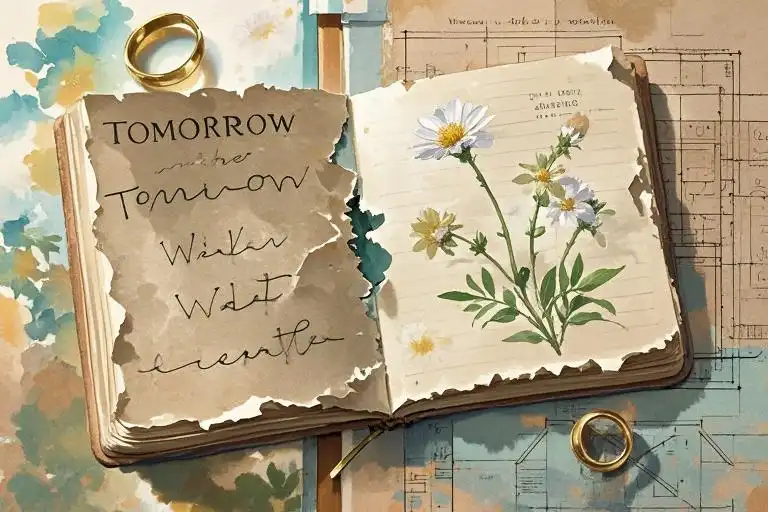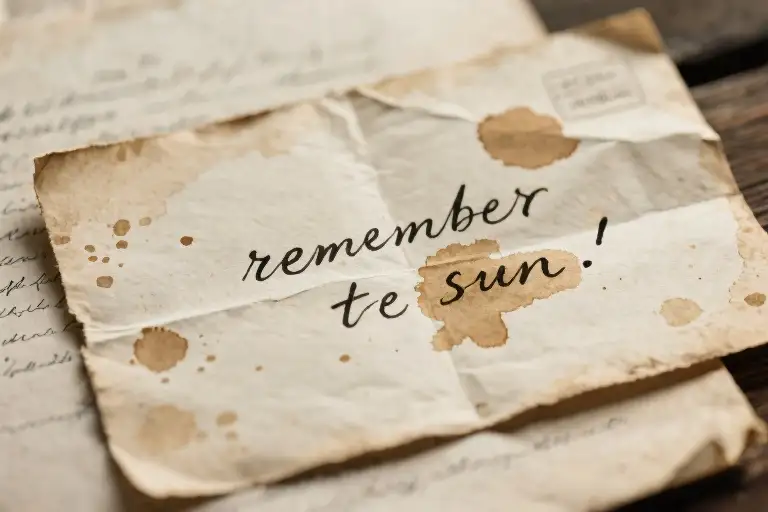The courtroom air smelled like burnt coffee and regret. As the judge stamped our divorce papers, his pen hesitated. “Any shared assets needing special allocation?” My ex-husband shook his head silently while I touched my throat, suddenly feeling the ghost-weight of words we’d sworn to carry forever. “Just three,” I said. “We’ll each keep one.”
For twelve years, “Tomorrow. Will. Wait.” had been our nightly sacrament. We’d whisper it brushing teeth, texting from business trips, or clinging to each other in ER waiting rooms. The phrase began as rebellion during our Las Vegas elopement – two broke college kids stealing a weekend from part-time jobs and student loans. Back then, we’d giggle through the “T” sounds, lips grazing as we mocked adult responsibilities.
How rituals become ropes
The magic worked best during our Berlin winter. I’d caught pneumonia working double shifts at the gallery, feverish and coughing up abstract color swatches. He canceled his architecture internship exams to brew thyme honey tea, pressing the chipped “Tomorrow” mug into my hands each morning. When the steam fogged his glasses, he’d blink owlishly and mouth “Will. Wait.” through the haze like a vow.
Yet rituals rust faster than they form. By year seven, I noticed his “Tomorrow”s came with Excel sheets open on his laptop. My “Will” got trapped under conference call mute buttons. We became linguistic accountants, trading syllables like debt coupons. The night I found jasmine perfume on his scarf (I only wear vanilla), he still dutifully murmured “Wait” before turning to his pillow. The words had become seatbelts in a crashing car – technically functional, but unrelated to survival.
The anatomy of a dying mantra
Marriage therapists love dissecting communication patterns. Ours diagnosed “phrase dependency” – using verbal shorthand to bypass hard conversations. “You’ve created emotional emojis,” Dr. Levitt warned, tapping her notebook. “Heart symbols replacing actual pulses.”
Neuroscience explains why we clung to the carcass: repeating familiar phrases triggers dopamine hits, like smelling childhood shampoo. Our brains had mapped a “love highway” between “To-” and “-ait,” bypassing the messy neighborhood of real feelings. We were junkies chasing the memory of connection.
Silence as our second language
The custody agreement stipulated “amicable cooperation.” On Ethan’s first solo weekend with our daughter, I hovered by the door as he buckled her into the car seat. The old words itched behind my teeth. Instead, I pressed three wild daisies into his palm – a language we hadn’t ruined yet.
Now, when Lily runs between our homes, she carries a patchwork notebook. On my weeks, I draw how the maple tree outside her window dances in storms. Ethan adds engineering sketches of bird feeders during his time. We meet every Sunday to tape new pages together, hands brushing but never grasping.
Some nights, I catch myself mouthing “Tom-” to the dark. Then I remember – broken mantras make excellent compost. From their syllables, we’re growing something quieter, sturdier, and alive with possibilities we haven’t named yet.


